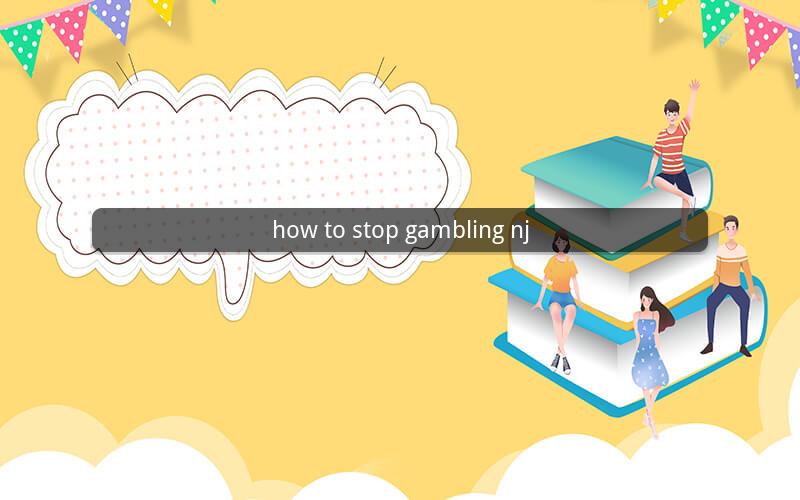
Table of Contents
1. Understanding the Problem
2. Identifying the Signs of Problem Gambling
3. Seeking Professional Help
4. Setting Personal Limits
5. Utilizing Self-Exclusion Programs
6. Finding Supportive Communities
7. Educating Yourself on Responsible Gambling
8. Developing Coping Mechanisms
9. Monitoring Your Financial Health
10. Celebrating Sobriety
1. Understanding the Problem
Gambling can be an enjoyable pastime for many individuals. However, for some, it can develop into a harmful addiction. In New Jersey, where gambling is widespread, it is crucial to recognize the signs of problem gambling and take steps to address it. Understanding the problem is the first step towards overcoming it.
2. Identifying the Signs of Problem Gambling
Problem gambling can manifest in various ways. Some common signs include:
- Feeling the need to gamble more and more money
- Lying to friends and family about gambling activities
- Neglecting responsibilities at work, school, or home
- Feeling restless or irritable when unable to gamble
- Using gambling as a way to escape problems or negative emotions
3. Seeking Professional Help
If you suspect that you or someone you know has a gambling problem, seeking professional help is essential. A therapist or counselor can provide guidance, support, and coping strategies to overcome addiction.
4. Setting Personal Limits
Setting personal limits is a crucial step in managing gambling behavior. This can include:
- Establishing a budget for gambling activities
- Setting time limits for gambling sessions
- Avoiding gambling in high-risk environments
5. Utilizing Self-Exclusion Programs
New Jersey offers self-exclusion programs for individuals who wish to ban themselves from casinos. This can be an effective way to prevent access to gambling venues and limit the temptation to gamble.
6. Finding Supportive Communities
Joining a supportive community can provide encouragement and a sense of belonging. Gamblers Anonymous and other similar groups offer meetings and resources for individuals struggling with gambling addiction.
7. Educating Yourself on Responsible Gambling
Educating yourself on responsible gambling can help you make informed decisions. This includes understanding the odds of winning, the risks involved, and the importance of playing responsibly.
8. Developing Coping Mechanisms
Developing coping mechanisms can help you manage stress and negative emotions without turning to gambling. This can include:
- Engaging in hobbies or activities you enjoy
- Exercising regularly
- Practicing mindfulness and relaxation techniques
- Seeking support from friends and family
9. Monitoring Your Financial Health
Monitoring your financial health is crucial in managing gambling addiction. This includes:
- Keeping track of your gambling expenses
- Setting financial goals and priorities
- Seeking help if you experience financial difficulties
10. Celebrating Sobriety
Celebrating your sobriety is an important step in the recovery process. This can include:
- Recognizing your progress and achievements
- Sharing your story with others
- Participating in events and activities that promote responsible gambling
Questions and Answers
1. What are the common signs of problem gambling?
- Feeling the need to gamble more and more money, lying to friends and family, neglecting responsibilities, feeling restless when unable to gamble, and using gambling as a way to escape problems.
2. How can I seek professional help for a gambling problem?
- Contact a therapist or counselor specializing in addiction, or seek help from a local gambling helpline.
3. What are some personal limits I can set for gambling?
- Establishing a budget, setting time limits, and avoiding high-risk environments.
4. How can I utilize self-exclusion programs in New Jersey?
- Visit a New Jersey casino and complete a self-exclusion form, which will ban you from the property for a specified period.
5. What are some supportive communities for individuals with gambling addiction?
- Gamblers Anonymous, Gam-Anon, and other similar groups offer meetings and resources.
6. How can I educate myself on responsible gambling?
- Research online resources, attend workshops, and read books on responsible gambling.
7. What coping mechanisms can help manage stress without gambling?
- Engaging in hobbies, exercising, practicing mindfulness, and seeking support from friends and family.
8. How can I monitor my financial health when managing a gambling addiction?
- Keep track of gambling expenses, set financial goals, and seek help if experiencing financial difficulties.
9. How can I celebrate my sobriety from gambling addiction?
- Recognize your progress, share your story with others, and participate in events that promote responsible gambling.
10. What resources are available in New Jersey for individuals struggling with gambling addiction?
- The New Jersey Division of Gaming Enforcement offers a gambling helpline, counseling services, and self-exclusion programs.